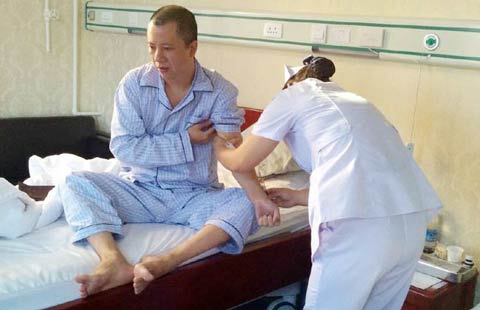Pledge of strong reform
Updated: 2014-09-11 07:34
(China Daily)
|
|||||||||||
Premier Li Keqiang's dialogue with global corporate executives on Tuesday, prior to the start of this year's Summer Davos in Tianjin, and his keynote speech opening the event on Wednesday were, in effect, China's report card to the world about its transition to a more efficient economy.
Compared with a couple of years ago, China's economic strategy has become more comprehensive and balanced, featuring more specific targets. As Li has repeatedly said, instead of just chasing GDP growth, the government aims to keep a few main indexes within a reasonable range.
The definition of an acceptable range being GDP growth of around 7.5 percent for the year, so enough urban jobs are created, and inflation below 3.5 percent; these two will be achieved with no abrupt expansion of the money supply and no major setback in foreign trade.
Based on the data from the foregoing months of the year, few will doubt China's ability to maintain this reasonable range.
China's strategy is to make quick, small, targeted adjustments. This has been most evident in the so-called fine-tuning of monetary policies, especially the credit programs for small enterprises, which are the main force for generating new jobs, particularly in the service industry. In contrast with these newly introduced mini-stimulus programs, the large, indiscriminate financial stimulus used in the past has clearly fallen out of favor. Despite some recent sluggish data, the premier categorically ruled out any massive stimulus.
The government is concentrating its investment on cherry-picked public programs and projects to improve people's livelihoods and boost local businesses in the less-developed central and western areas, such as continuing to modernize and expand the railway network and funds channelled to technological progress.
Most importantly, as Li said, it is not a strong stimulus that is needed, but strong reform. There is now a much stronger conviction in reform's capability to release new productivity, and according to the premier, reform is already bearing fruit, as the figures show.
The central government has cut or delegated to lower authorities some 600 requirements for administrative approval since the beginning of the year. As a result the growth in newly registered companies was "like a gusher," Li said, and 8 million were registered between January and August.
As Li has pledged, the government will maintain the reform momentum, and putting such a large market under better governance will be China's best contribution to the world.
Related Stories
Davos Forum participants get a taste of Tai Chi 2014-09-10 19:54
China on right growth track, remaining attractive: Davos founder 2014-09-10 09:40
Preparation work at Summer Davos forum 2014-09-10 08:14
Tianjin enjoys benefits of hosting Summer Davos 2014-09-10 08:10
Today's Top News
China on right growth track: Davos founder
Risks rising in Europe: Chinese economist
Suspected Ebola case reported in Italy
Britain to send £1.6m arms to Iraq
Pessimism in ties with Japan
Apple unveils new phones, watch
Oxford University attests to power of the nation
Turkey in missile talks with France
Hot Topics
Lunar probe , China growth forecasts, Emission rules get tougher, China seen through 'colored lens', International board,
Editor's Picks

|

|

|

|

|

|





